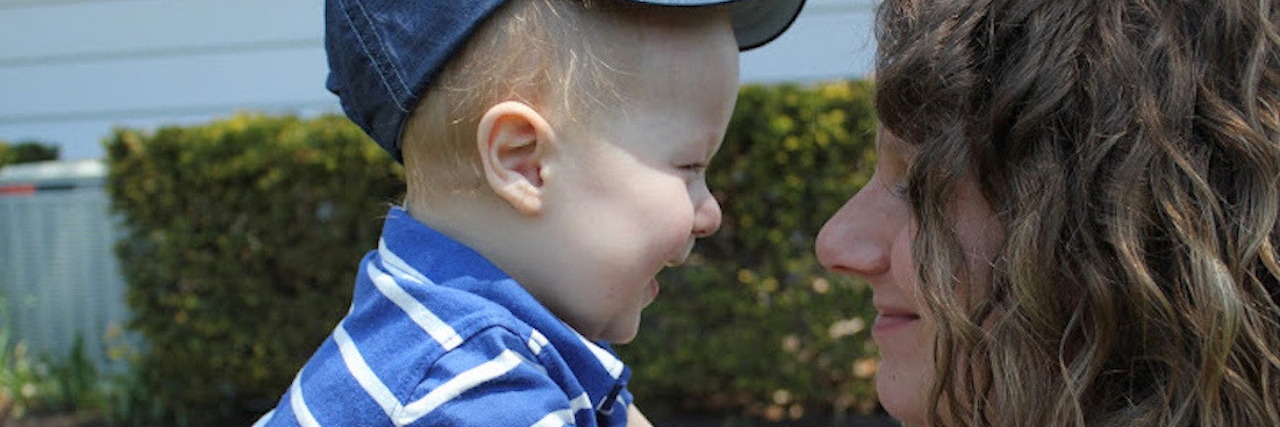“Do I expect your child to live two decades? No, probably not.”
The doctor said it so matter-of-factly that it took a minute to settle in. Then I could feel the cry coming — not from the throat, but from the gut. A cry so awful that the minute it escaped my mouth I felt embarrassed by how awful it sounded.
I’m not sure how it’s supposed to feel when you’re told your son won’t make it to adulthood, but for me, it felt like I had been kicked in the kidneys, my heart was exploding and I had taken five shots of tequila all at the same time. Even now, two days later, I feel like I’m recovering from a KO punch. And I’m tired.
It has already been a long road, and it’s not the first time I’ve made that horrible crying sound. I made it when my son, Max, was diagnosed with “failure to thrive” and admitted to the hospital. I made it when they told me he would have to have a G-tube to survive. I made it at the initial genetic diagnosis of a duplication of the 16p11.2 chromosome (a diagnosis that has since been labeled as benign). And I made it when he was diagnosed with a rare disorder called peroxisomal biogenesis disorder (PBD).
Every time, I rationalized and compartmentalized until I was able to function under each of these circumstances. But this one? How do you rationalize and compartmentalize this? The only comfort I could possibly find is that one of my main worries used to be I would pass away and there would be no one to look after Max. In all likelihood, that won’t happen. But how could I live in a world without my sweet Max?

The first question people seem to ask is usually in regards to a cure. Although there is research being done, there currently is no cure. There is a Global Foundation for Peroxisomal Disorders, which we plan to join and hopefully gather information from.
I feel like I’m supposed to put together some beautifully profound and inspirational thoughts, but that sounds exhausting. Instead, I will say this sucks because it totally does. There’s nothing anyone can say or do to make it much better, but there are definitely two things everyone can do to make it a little easier:
1. Have understanding and empathy.
All of this is very hard for us to talk about, and answering questions about his diagnosis is very difficult, if not impossible. The hardest question by far is always, “How’s Max?”
2. Treat us like you always would.
We want normalcy so bad. Please don’t send us notes saying how sorry you are to hear about this. We understand the sentiment, but it feels a lot like pity, and that doesn’t feel great. Instead, I like the following sentiments:
• Max is doing so well. (Because he really is — he’s such a happy little boy.)
• You guys are wonderful parents, and we will help you any way we can.
Give support. Your thoughts, your prayers, your bad jokes. All are always welcome.

Follow this journey on persucksisomalbiogenesisdisorder.blogspot.com.
The Mighty is asking the following: What’s one thing people might not know about your experience with disability, disease or mental illness, and what would you say to teach them? If you’d like to participate, please send a blog post to community@themighty.com. Please include a photo for the piece, a photo of yourself and 1-2 sentence bio. Check out our Submit a Story page for more about our submission guidelines.

